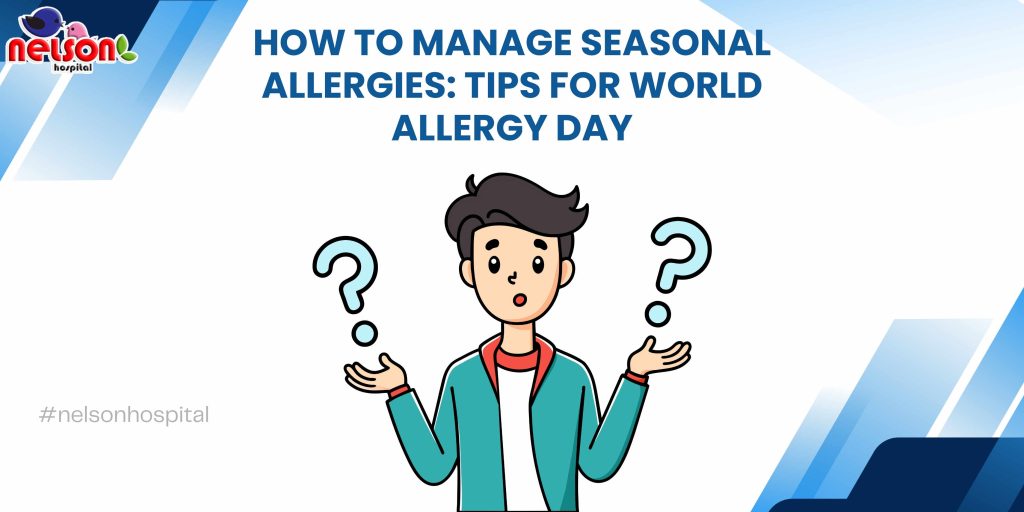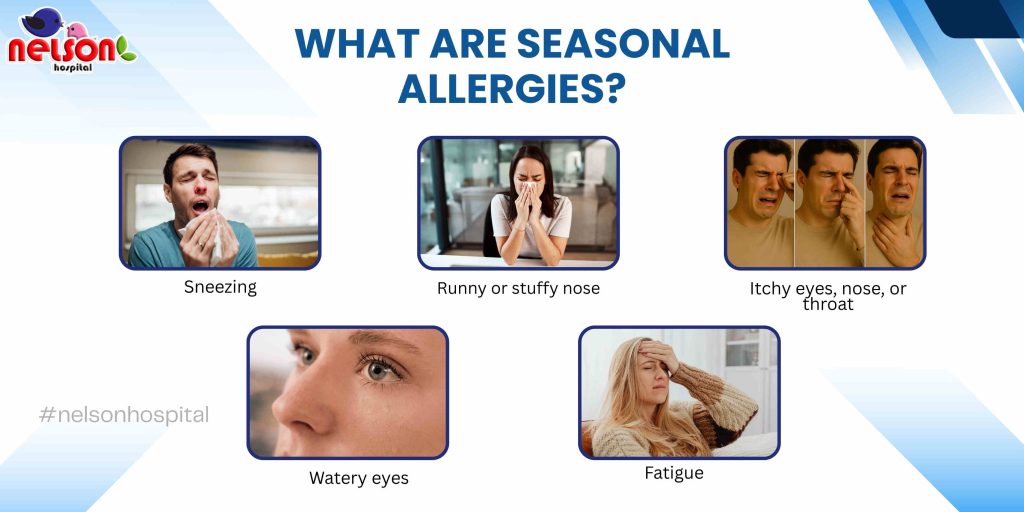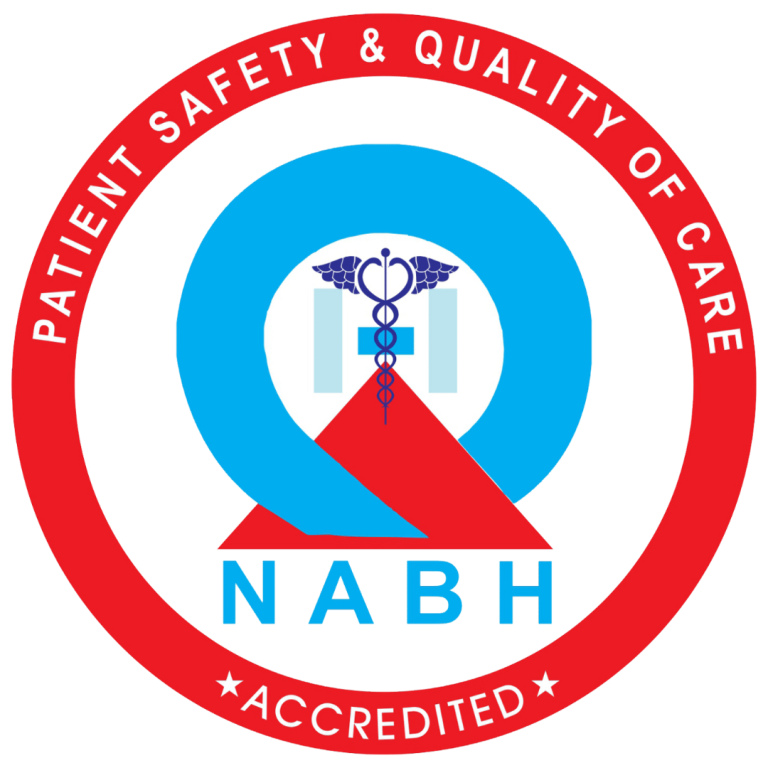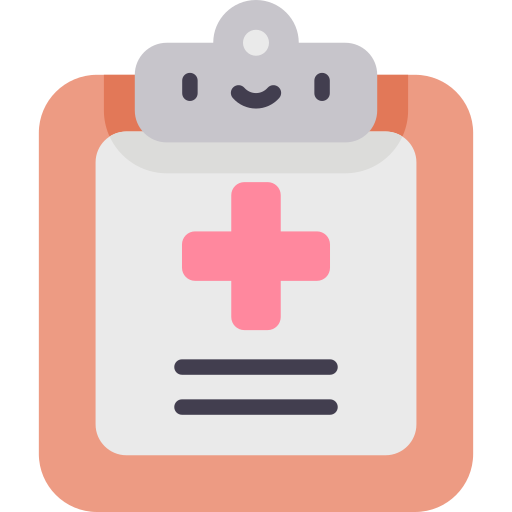
Seasonal allergies affect millions of people across the globe and are especially common during spring and fall. World Allergy Day is the perfect opportunity to raise awareness about allergy prevention, symptoms, and treatment. At Nelson Hospital, we believe in empowering our community with the right knowledge to take control of their health.
In this comprehensive guide, we will explore the causes of seasonal allergies, highlight effective prevention techniques, and share expert tips to help you manage your allergy symptoms.
What Are Seasonal Allergies?
Seasonal allergies, commonly known as hay fever or allergic rhinitis, are allergic reactions triggered by environmental allergens that are more prevalent during certain times of the year. These allergens typically include pollen from trees, grasses, and weeds, as well as mold spores. When a person with allergies is exposed to these substances, their immune system mistakenly identifies them as harmful, causing symptoms such as sneezing, nasal congestion, runny nose, itchy eyes, throat irritation, and fatigue. Seasonal allergies can affect individuals of all ages and vary in severity. Proper diagnosis and management can help reduce discomfort and improve quality of life.

Common symptoms include:
- Sneezing
- Runny or stuffy nose
- Itchy eyes, nose, or throat
- Watery eye
- Fatigue
Why Do Seasonal Allergies Worsen in Certain Months?
Seasonal allergies tend to worsen in specific months due to increased levels of airborne allergens like pollen and mold spores. In spring, tree pollen is a major trigger, while in summer, grass pollen dominates. During autumn, weed pollen—especially ragweed—is prevalent. Additionally, humid weather in monsoon months encourages mold growth, further aggravating allergy symptoms. Environmental factors such as rising temperatures, longer pollen seasons, and air pollution due to climate change also contribute to the intensity of allergic reactions. These allergens peak at different times, causing seasonal flare-ups that can be particularly difficult for individuals with respiratory sensitivities or asthma.
Tips to Manage Seasonal Allergies
Monitor Pollen Levels
Stay updated on daily pollen counts through weather apps or online resources. On high pollen days, limit outdoor activities, especially in the morning when pollen levels peak.
Keep Windows Closed
While fresh air is great, keeping your windows shut during peak allergy season can prevent allergens from entering your home.
Use HEPA Filters
High-Efficiency Particulate Air (HEPA) filters in your air conditioner or vacuum cleaner can significantly reduce airborne allergens indoors.
Shower and Change Clothes After Outdoor Activities
Pollen can stick to your skin, clothes, and hair. Make it a habit to shower and change clothes immediately after spending time outdoors.
Wash Bedding Regularly
Dust mites and pollen can settle on your sheets and pillowcases. Wash bedding in hot water weekly to keep allergens at bay.
Try Over-the-Counter Medications
Antihistamines, nasal sprays, and decongestants can provide relief. Always consult a doctor at Nelson Hospital before starting any medication.
Consider Allergy Testing
If your symptoms persist, getting an allergy test at Nelson Hospital can help identify specific triggers and guide your treatment plan.
Use a Saline Nasal Rinse
A nasal rinse can flush out allergens and irritants from your nasal passages, providing instant relief from congestion and irritation.
Maintain a Clean Home
Regularly clean surfaces, vacuum floors, and remove clutter where dust can accumulate. Opt for hypoallergenic bedding and keep pets off furniture.
Stay Hydrated and Eat a Balanced Diet
Drinking plenty of water helps thin mucus and reduce congestion. A diet rich in anti-inflammatory foods, like fruits and vegetables, can support your immune system.
How Nelson Hospital Helps Manage Allergies
At Nelson Hospital, our allergy specialists provide personalized treatment plans for patients suffering from seasonal allergies. From diagnostic tests to immunotherapy, we offer a full range of services designed to help you breathe easier.
Our services include:
- Comprehensive allergy testing
- Expert consultation
- Prescription management
- Allergy shots (immunotherapy)
- Patient education and support
The Role of Immunotherapy
For individuals with severe or persistent allergies, immunotherapy (allergy shots) may be recommended. This treatment gradually desensitizes your immune system to allergens. Over time, it can reduce or even eliminate allergic reactions.
When to See a Doctor
While many people manage allergies at home, you should consult a healthcare professional if:
- Symptoms interfere with daily activities
- Over-the-counter medications aren’t effective
- You experience frequent sinus infections
- Asthma symptoms worsen
Nelson Hospital’s dedicated ENT and allergy department is equipped with the latest technology and compassionate care to support your journey toward better respiratory health.
Raising Awareness on World Allergy Day
World Allergy Day is more than a health observance; it’s a call to action. By understanding your symptoms and getting the right care, you can enjoy a healthier, more comfortable life. Spread the word, support loved ones, and don’t hesitate to consult Nelson Hospital for professional guidance.
Conclusion
Seasonal allergies can be frustrating, but with proper care and preventive measures, they are manageable. On this World Allergy Day, take the first step toward better health by identifying your triggers, following expert tips, and seeking medical advice when needed.
Book an Appointment







